Turmeric Face Pack: Benefits And How To Use
Enhance your skincare regimen with the spice's antimicrobial and antioxidant properties.
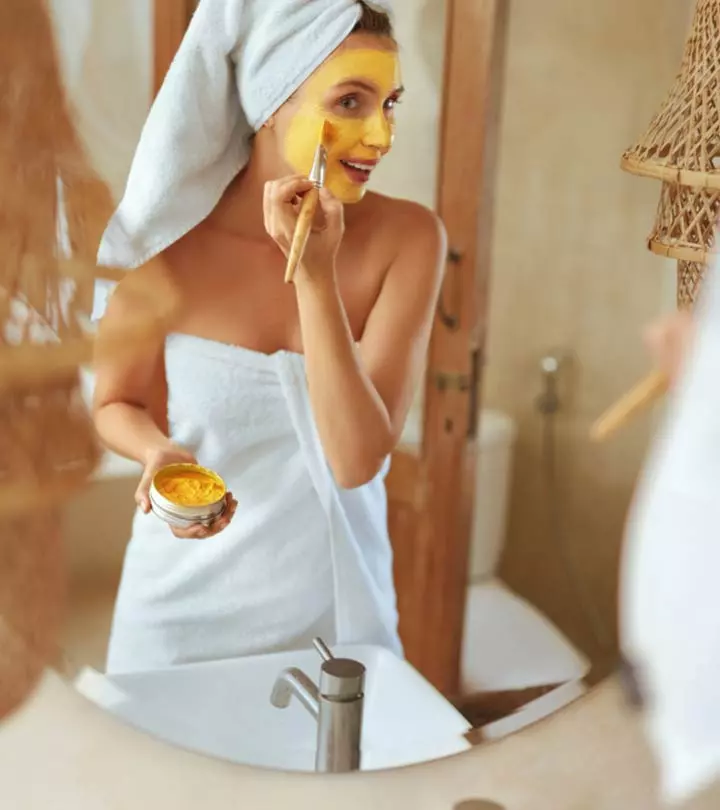
Image: ShutterStock
Turmeric, also known as haldi, is a common food colorant that has been used in India for centuries. Besides, turmeric is a popular ingredient that plays a key role in daily skin care. The benefits of haldi or turmeric face packs include fighting acne and keeping your skin radiant. But if you are unsure about making one, you have come to the right place. Read this article to learn about its potential benefits and the tips to keep in mind while using haldi face packs.

In This Article
Is Turmeric Good For Skin?
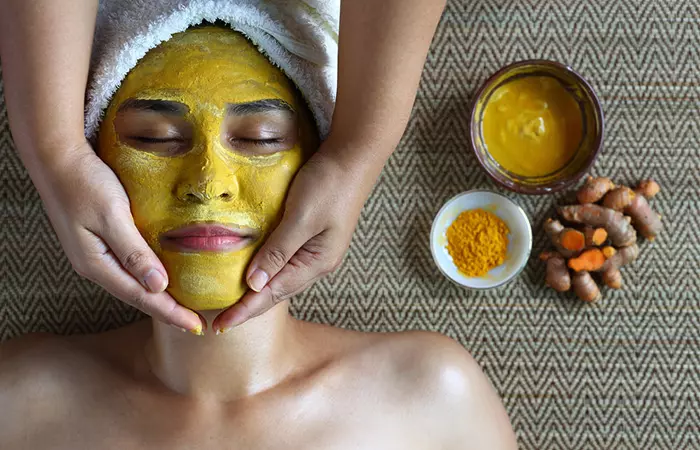
Since ancient times, Indians have been using turmeric for their dietary and cosmetic purposes. Turmeric offers various benefits. Anecdotal evidence suggests that it has been used in various natural remedies and alternative medicine for centuries, including Ayurveda. In addition to using turmeric as a raw ingredient in a skincare routine, many skin care products also include it as their core ingredient.
The reason turmeric is so favored by many as a good skincare ingredient is its characteristic compound called curcumin. This compound possesses important anti-inflammatory and antioxidanti A man-made or natural substance that can prevent oxidation and lessen and delay cell damage caused by free radicals. properties (1).
 Trivia
TriviaIn the next section, we have discussed the benefits turmeric can offer for your skin.
Key Takeaways
- The curcumin in turmeric makes it an important ingredient in skin care products.
- It may boost the natural glow of your skin, offer UV protection, reduce acne, and stop facial hair growth.
- You can prepare turmeric face packs by mixing it with other natural ingredients like yogurt, almond oil, honey, etc.
- It is best to use turmeric in little quantities as it may stain your skin.
Benefits Of Using Turmeric On Face
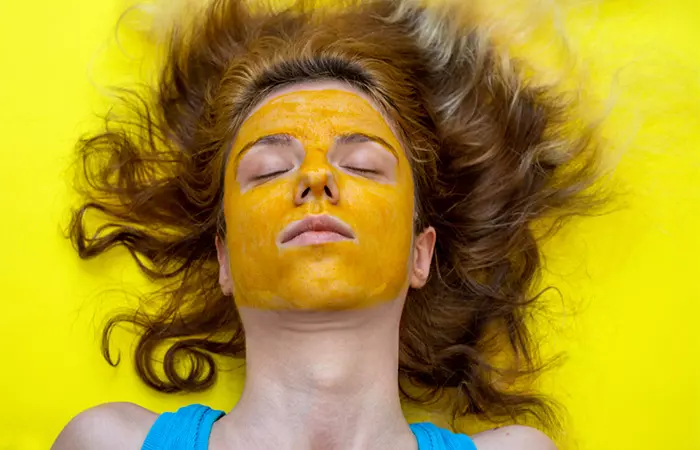
1. May Boost Natural Skin Glow
Turmeric possesses strong antioxidant and anti-inflammatory anti-inflammatoryi A property of a substance that can stop inflammation-causing agents to reduce redness, swelling, and pain. properties. It is believed the spice may boost skin glow (2).
2. May Stop Facial Hair Growth
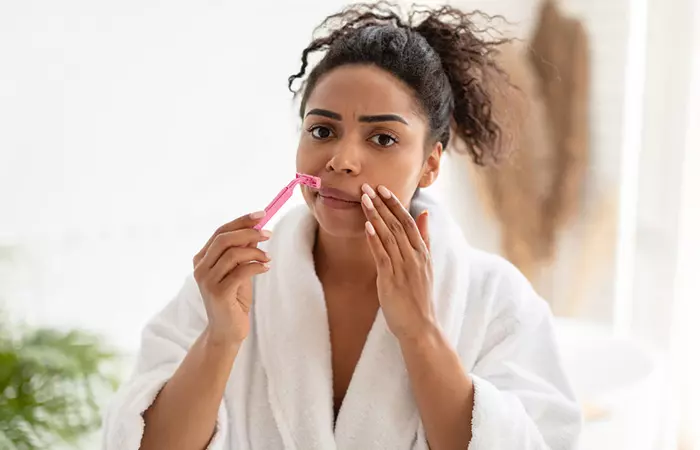
Some research suggests that turmeric may result in the breakdown of hair follicles on the face, thereby stunting facial growth (3). However, more research is warranted in this regard. Though using turmeric for removing facial hair may not be as effective as waxing or shaving, it sure could be safer and less harsh.
3. May Help Treat Psoriasis
In mouse studies, curcumin was found to help treat psoriasisi A chronic skin condition that happens due to immune system problems, causing itchy and scaly patches on the skin. (4). This may be the result of curcumin’s healing antioxidant and anti-inflammatory properties.
4. May Help Treat Acne
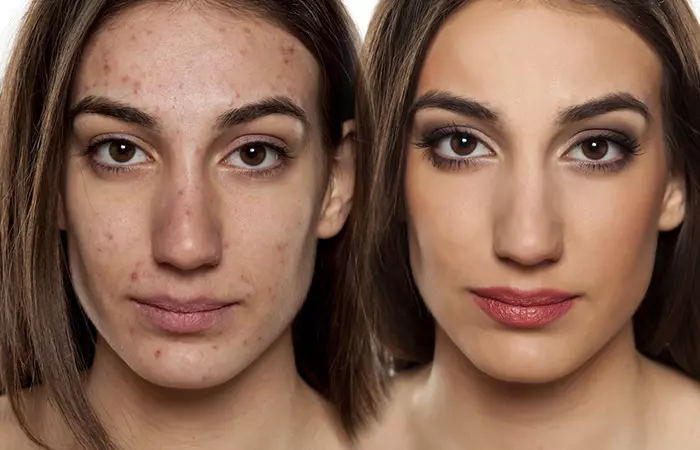
Turmeric for acne has been used for centuries. The antiseptici A compound that stops or slows down the growth of microorganisms when applied to the skin or tissue. , anti-inflammatory, and antioxidant properties of turmeric make it the perfect natural remedy against recurring acne (5).
5. May Offer UV Protection
The antioxidant properties of turmeric may help treat sunburns and also offer protection against the harmful UV rays, exposure to which may cause cancer, wrinkles, and hyperpigmentationi A common skin condition in which skin patches become darker than the surrounding areas due to excess production of melanin. (6).
6. May Prevent Aging Signs
The anti-inflammatory and antioxidant properties of turmeric make it an effective solution against the signs of aging. Curcumin present in turmeric may prevent skin photoaging and improve the overall health of the skin. Researchers have explored the use of curcumin in treating skin aging caused by sun exposure. A study involving 28 women in their 30s found that turmeric could help improve skin firmness and elasticity after four weeks of daily use (5).
7. May Soothe The Skin
Turmeric may increase the production of hyaluronan, which helps to retain water in the skin, thus keeping it hydrated (5). Moreover, the anti-inflammatory properties of curcumin in turmeric may also help soothe the skin and improve wound healing.
In the next section, we will look at how you can make a haldi face pack at home.
How To Make Turmeric Face Packs At Home?
1. Gram Flour, Sandalwood, And Turmeric Pack
Gram flour is believed to be a good exfoliant that may help remove dead skin cells from your face. Sandalwood (and its oil) may help protect against skin cancer (7).
What You Will Need
- 2 teaspoons of gram flour
- A pinch of turmeric
- 1 teaspoon of sandalwood
What You Have To Do
- Mix the ingredients in a bowl. Add some water to get a fine paste.
- Apply the paste all over your face and neck.
- Leave it on your face for 15 minutes and wash with lukewarm water.
How Often You Should Do This
Do it twice a week.
2. Milk, Almond, And Turmeric Pack
Anecdotal evidence suggests that milk helps slow down the signs of aging. Meanwhile, almonds are known for skin rejuvenating benefits (8).
What You Will Need
- 1 teaspoon of milk
- 1 teaspoon of almond powder
- A pinch of turmeric powder
What You Have To Do
- Mix the ingredients in a bowl.
- Apply it evenly all over your face and neck.
- Leave the mask on for 15 to 20 minutes.
- Wash your face with lukewarm water after 20 minutes.
How Often You Should Do This
Do this once a week.
3. Yogurt And Turmeric Pack
The lactic acid in yogurt may exfoliate the skin (9). Yogurt, along with turmeric, may also enhance ones complexion.
What You Will Need
- 2 teaspoons of yogurt
- 1 teaspoon of fullers earth
- 2 teaspoon of rose water
- ½ a spoon of turmeric powder
What You Have To Do
- Mix the ingredients in a bowl until you get a fine paste.
- Apply the paste evenly all over your face and neck.
- Leave the mask on for 15 minutes and rinse with lukewarm water.
How Often Should You Do This
Do this once a week.
4. Aloe Vera And Turmeric Pack
Aloe vera has antioxidant properties (10). These may enhance skin health and protect it from environmental aggressors.
What You Need
- 2 teaspoons of fullers earth
- 1 teaspoon of yogurt
- ½ a teaspoon of aloe vera gel
- A pinch of turmeric powder
What You Have To Do
- Mix the ingredients to form a smooth paste.
- Apply the pack all over your face and leave it on for 20 minutes.
- Rinse your face with cool water.
- Alternately, you can also use the aloe vera gel available on the market. However, fresh gel is way better than commercially packaged products.
How Often Should You Do This
Do this twice a week.
5. Turmeric, Cornstarch, And Honey Pack
Honey is a natural antioxidant (11). Some believe it may also make the skin glow. Cornstarch works as a binding agent and keeps the mask in place.
What You Will Need
- ¼ teaspoon of turmeric powder
- 1 teaspoon of honey
- 2 tablespoons of cornstarch
What You Have To Do
- Mix all the ingredients in a bowl and add water to make a fine paste.
- Apply the paste evenly all over your face and neck.
- Leave the mask on for 15 to 20 minutes.
- Remove the mask with lukewarm water.
How Often Should You Do This
Do this once a week.
Ngumabi, a blogger, shared her experience of using a turmeric and honey face mask for breakouts after her pregnancy: “The change I realized after using it on day one was that my face was softer, brighter and smoother. This encouraged me to look forward to applying it again in the days to come and to be consistent with it (i).”
6. Green Tea And Turmeric Pack
The EGCG in green tea protects and revitalizes cells in the skin’s outer layer. Research from the Medical College of Georgia shows it can energize aging cells, supporting healthier skin (12). This benefit may help reduce dullness and delay signs of aging, such as fine lines and wrinkles.
What You Will Need
- 1 teaspoon of turmeric powder
- 1 tablespoon of green tea powder
What You Have To Do
- Mix the turmeric powder with the green tea to form a smooth paste.
- Apply the paste evenly to your face.
- Leave it on for 10 to 15 minutes.
- Rinse off with lukewarm water.
How Often Should You Do This
Do this 1-2 times a week.
7. The Ultimate Turmeric Facepack For Radiant Skin
This face pack is the holy grail of face packs. It contains everything that could make your skin glow and feel fresh.
What You Will Need
- ¼ teaspoon of turmeric powder
- ½ a teaspoon of almond oil
- 2 teaspoons of honey
- 1 teaspoon of aloe vera gel
- 1 teaspoon of yogurt
- 1 teaspoon of rose water
- Powdered oats or gram flour
What You Have To Do
- Mix all the ingredients in a bowl.
- Apply the pack over the face and neck. Leave it on for 20 minutes.
- Remove it with a warm cloth and splash cold water on your face.
How Often Should You Do This
Do this once a month.
 Quick Tip
Quick TipWhile there are no known side effects of using turmeric on your face, you need to keep some points in mind.
Precautions To Be Taken While Applying Turmeric Face Packs
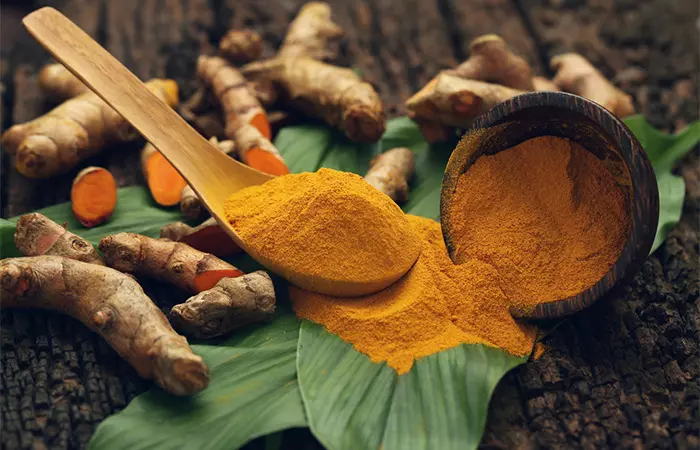
- Make sure to use turmeric in little quantities and only a few times a week. Turmeric may stain your skin and turn it yellow.
- Use fresh ingredients to achieve optimum results.
- Keep an eye out for the amount of lemon juice you use. Excess lemon juice may sting your skin and dry it out.
Infographic: Top 5 Turmeric Face Masks For Glowing Skin
Turmeric is a natural de-tanning ingredient that can help you achieve even and glowing skin. This golden powder pairs well with other nourishing organic ingredients and can be infused into several DIY face mask recipes. Check out the following infographic to learn more about the top 5 DIY turmeric-based face masks to incorporate into your skin care routine.
Some thing wrong with infographic shortcode. please verify shortcode syntaxTurmeric’s antioxidant and anti-inflammatory properties help treat several skin care issues. It has been used as a home remedy for ages. Using turmeric may help fade dark spots, brighten your skin, offer UV protection, minimize acne, reduce psoriasis symptoms, and may stop facial hair growth. You may use turmeric face packs to reap the maximum benefits of the ingredients. Following the skin care routine discussed above will help you prepare a face pack in the comfort of your home. You will start seeing results in some weeks.
Frequently Asked Questions
What’s the best way to store turmeric face masks?
If you have any leftover turmeric face mask, keep it in a sealed container in the fridge and try to use it within a week.
Can we apply turmeric directly on the face?
When used by itself, turmeric may stain your face yellow. Do a patch test before applying turmeric to your face, especially if you have sensitive skin. If you notice any adverse reactions like tingling, redness, or irritation, wash off the turmeric immediately.
Can turmeric remove dark spots?
Turmeric may reduce hyperpigmentation, which may reduce dark spots. However, there is not enough scientific evidence to prove this claim.
Can I use a turmeric mask every day?
Using a turmeric mask daily may leave your skin dried out and stained yellow. It is best to use this mask only as recommended.
Does turmeric darken the face?
Due to its yellow pigment, turmeric may stain your skin. But it does not darken your skin.
Why is my face burning after applying turmeric?
This may be an allergic reaction to turmeric. If your skin is burning, wash off the turmeric immediately and consult a doctor. You should perform a patch test on your forearm before applying turmeric to your face to avoid adverse reactions.
Can turmeric cause pimples?
No. Due to its antibacteriali The ability to kill or inhibit the growth of disease-causing bacteria, viruses, protozoans, and fungi. and anti-inflammatory properties, turmeric actually helps manage and reduce pimples. In fact, if you explore various homemade recipes for face packs for acne, you will find turmeric as a popular choice.
Can you sleep with turmeric on your face?
You may want to avoid leaving turmeric on your face overnight as it can stain your skin, clothes, and bedding yellow.
How long does it take for turmeric to work on skin?
If you use it consistently, you can see improvements in your skin texture, appearance, feel, and health in a few weeks.
Illustration: Turmeric Face Pack: Benefits And How To Use
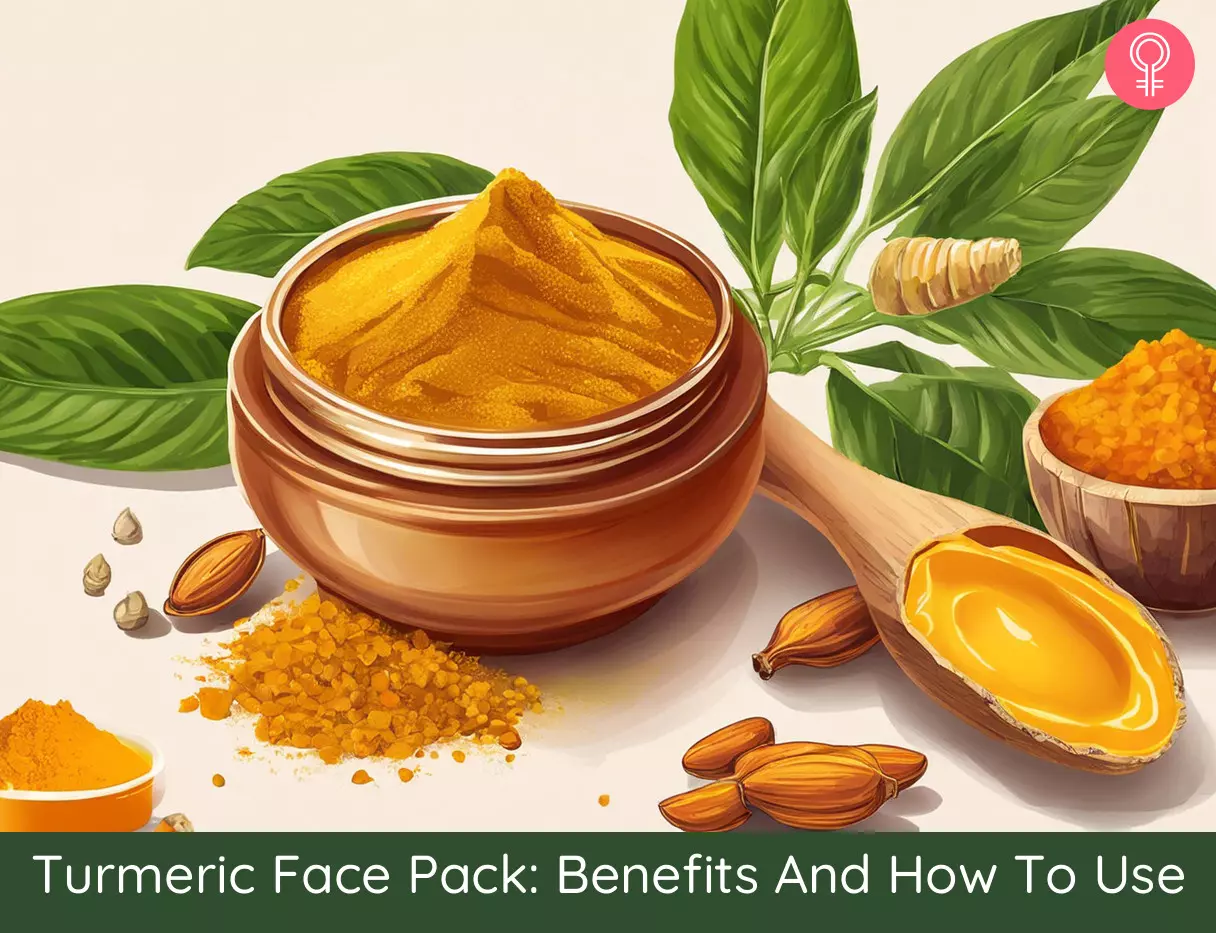
Image: Stable Diffusion/StyleCraze Design Team
Click on this video and learn how to make 3 easy and effective turmeric face masks for glowing beautiful skin! Get ready to pamper yourself with these natural recipes.
Personal Experience: Source
StyleCraze's articles are interwoven with authentic personal narratives that provide depth and resonance to our content. Below are the sources of the personal accounts referenced in this article.
i. I TRIED THE TURMERIC & HONEY FACE MASK FOR ALMOST TWO WEEKS!https://mylocaladventuresblog.blogspot.com/2019/09/tumeric-honey-beauty-face-mask-home.html
References
Articles on StyleCraze are backed by verified information from peer-reviewed and academic research papers, reputed organizations, research institutions, and medical associations to ensure accuracy and relevance. Read our editorial policy to learn more.
- Antioxidant and anti-inflammatory properties of curcumin
https://link.springer.com/chapter/10.1007/978-0-387-46401-5_3 - Turmeric, the Golden Spice
https://www.ncbi.nlm.nih.gov/books/NBK92752/ - Composition and Methods for Permanent Hair Removal
https://pubchem.ncbi.nlm.nih.gov/patent/US2014044814 - Curcumin shows excellent therapeutic effect on psoriasis in mouse model
https://www.sciencedirect.com/science/article/abs/pii/S0300908416000390 - Potential of Curcumin in Skin Disorders
https://www.ncbi.nlm.nih.gov/pmc/articles/PMC6770633/ - Protective effect of curcumin against ultraviolet A irradiation-induced photoaging in human dermal fibroblasts
https://www.ncbi.nlm.nih.gov/pmc/articles/PMC5928684/ - Re-discovering Sandalwood: Beyond Beauty and Fragrance
https://www.ncbi.nlm.nih.gov/pmc/articles/PMC6536050/ - The uses and properties of almond oil
https://www.sciencedirect.com/science/article/abs/pii/S1744388109000772 - Lactic acid applications in pharmaceutical and cosmeceutical industries
https://www.researchgate.net/profile/Azzam-Aladdin/publication/292990722_Lactic_acid_applications_in_pharmaceutical_and_cosmeceutical_industries/links/56b4a1b008ae922e6c02042d/Lactic-acid-applications-in-pharmaceutical-and-cosmeceutical-industries.pdf - Antibacterial activities and antioxidant capacity of Aloe vera
https://link.springer.com/article/10.1186/2191-2858-3-5 - Honey: A Novel Antioxidant
https://www.mdpi.com/1420-3049/17/4/4400 - Green tea polyphenols induce differentiation and proliferation in epidermal keratinocytes
https://pubmed.ncbi.nlm.nih.gov/12663686/
Read full bio of Dr. Zeel Gandhi
Read full bio of Sucharita Mishra
Read full bio of Anjali Sayee
Read full bio of Swathi E





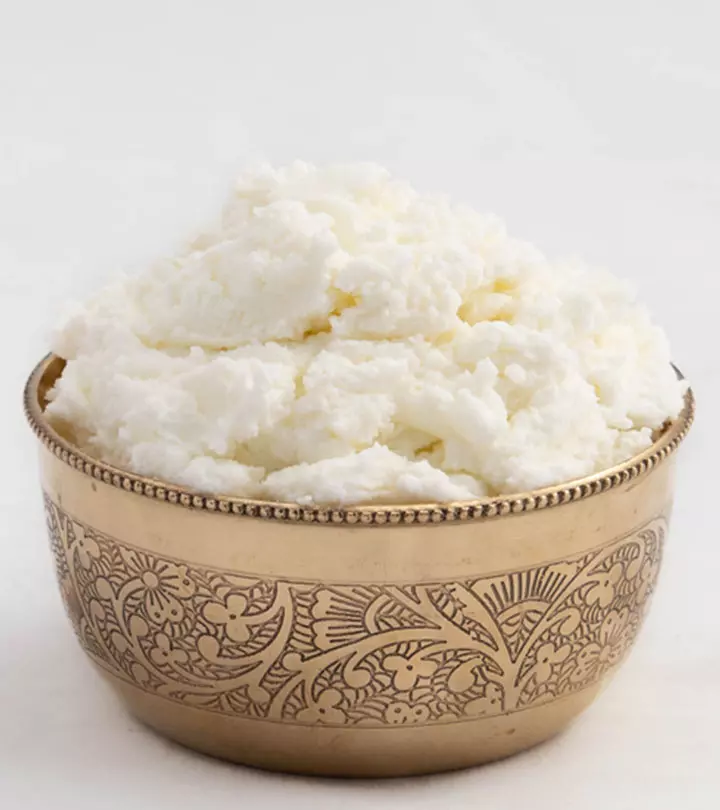
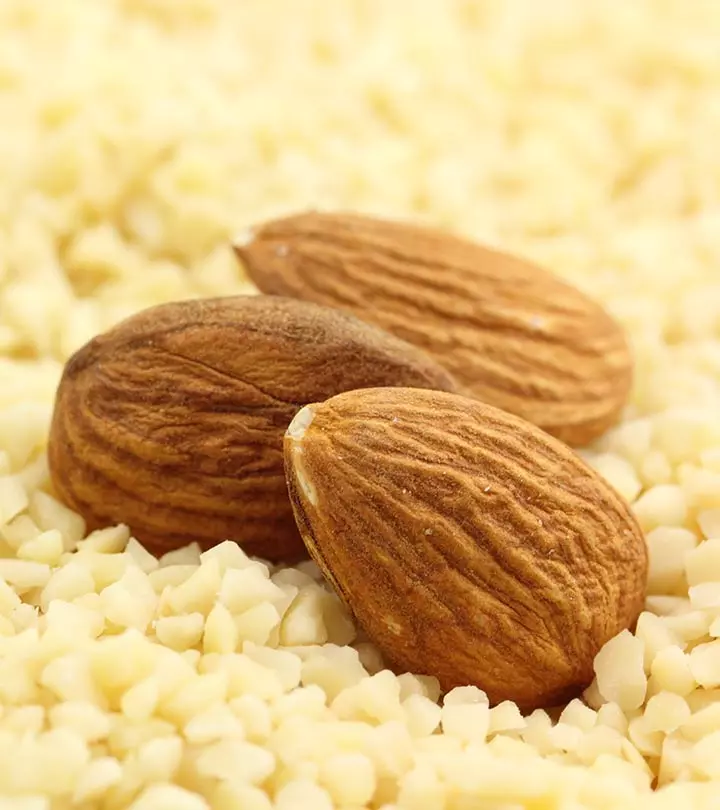
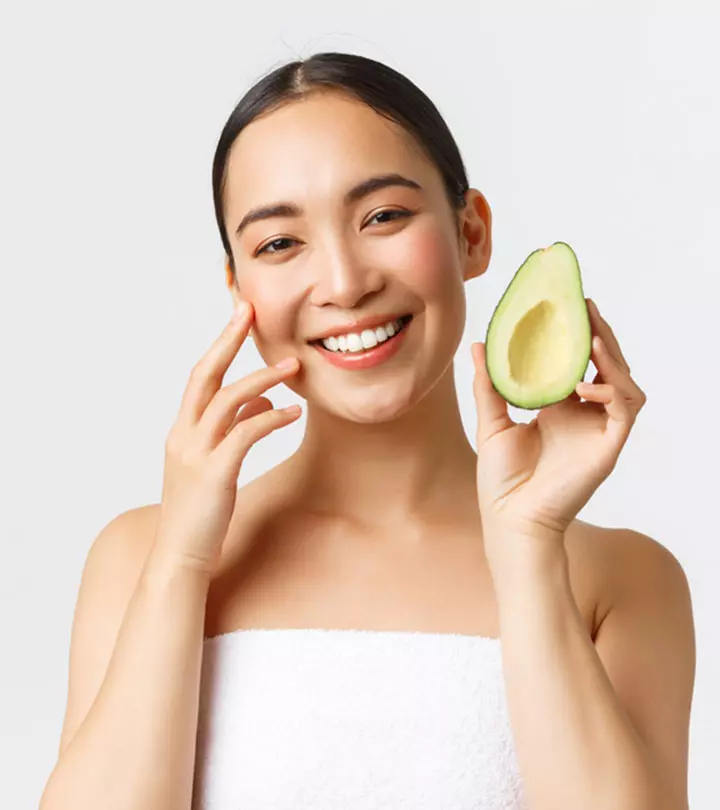
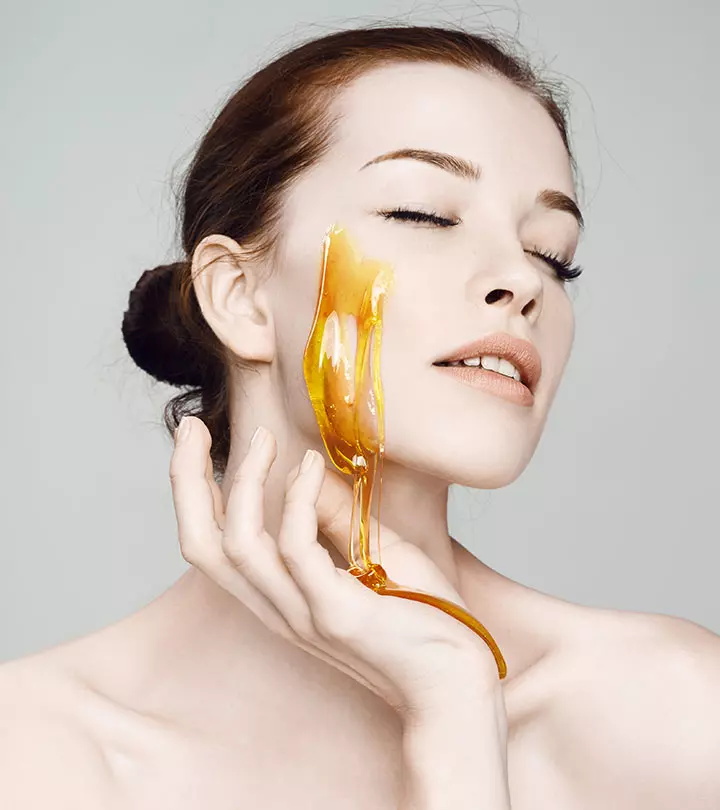
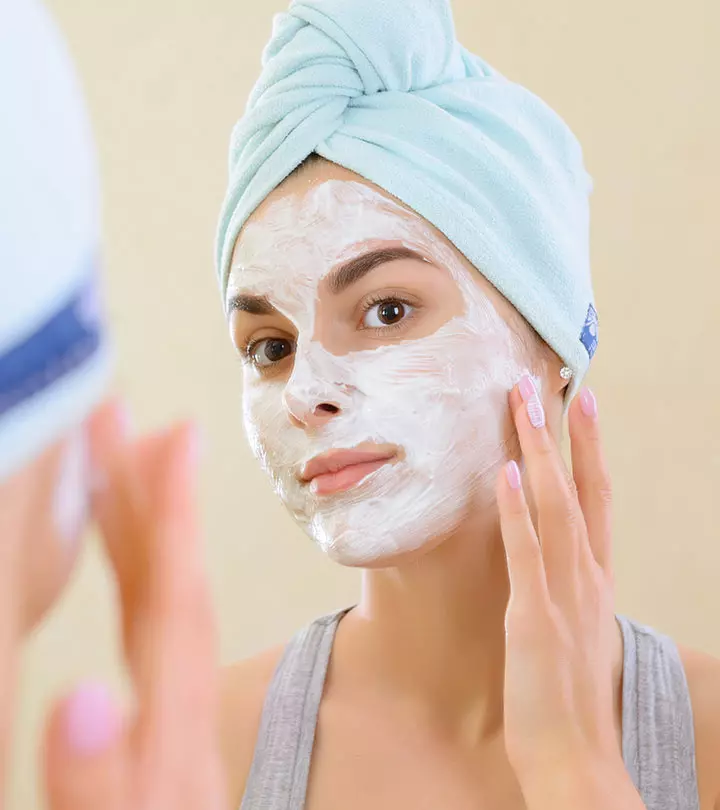

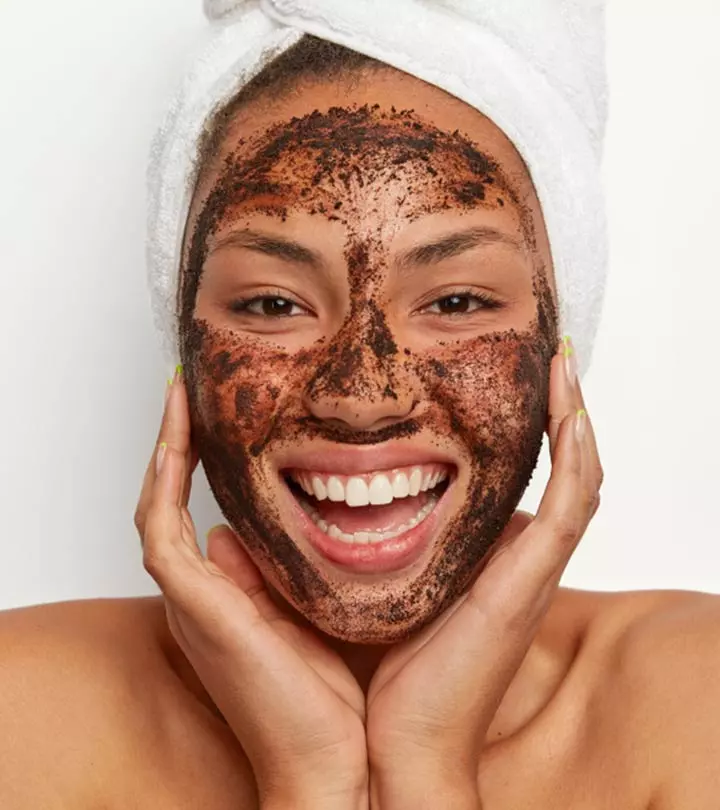
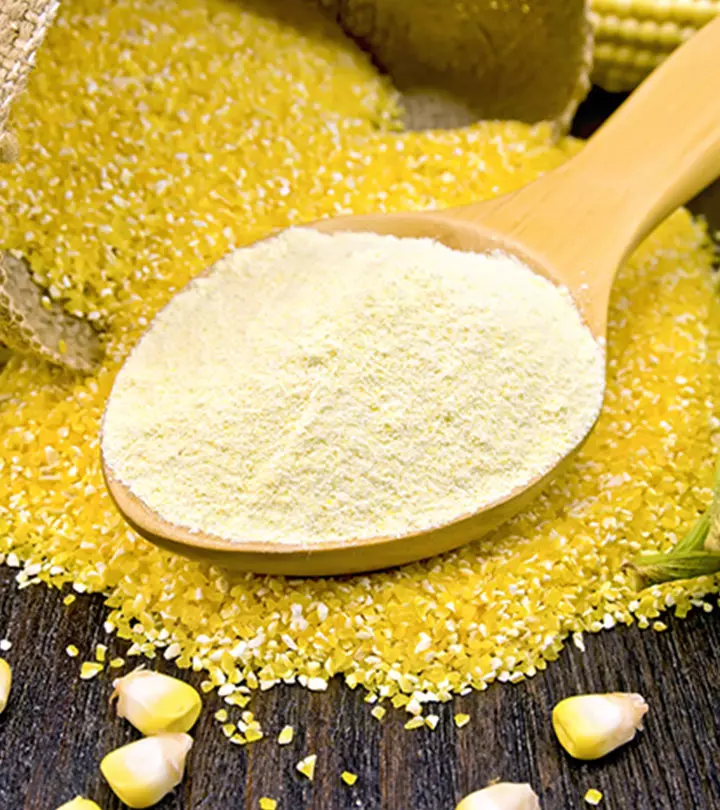
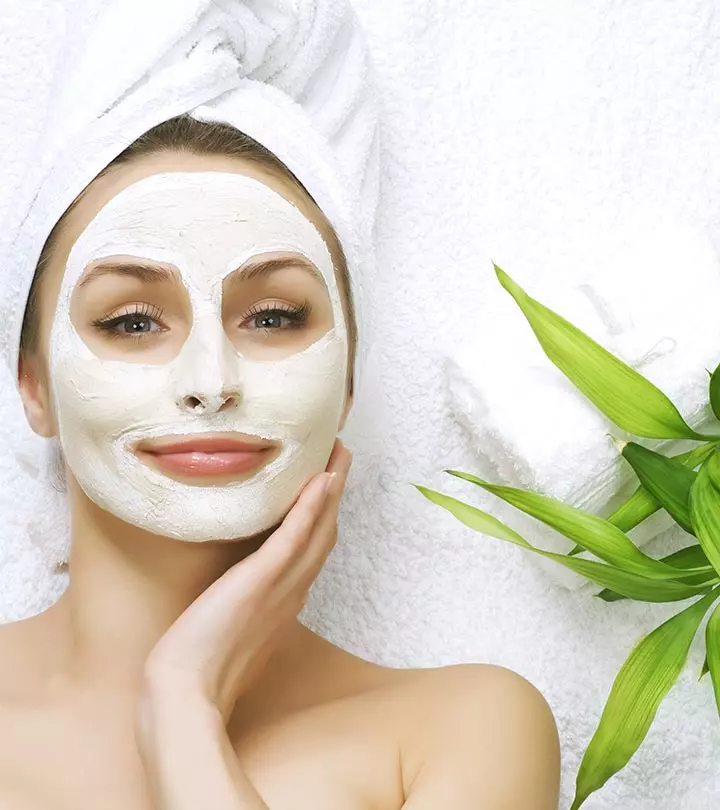
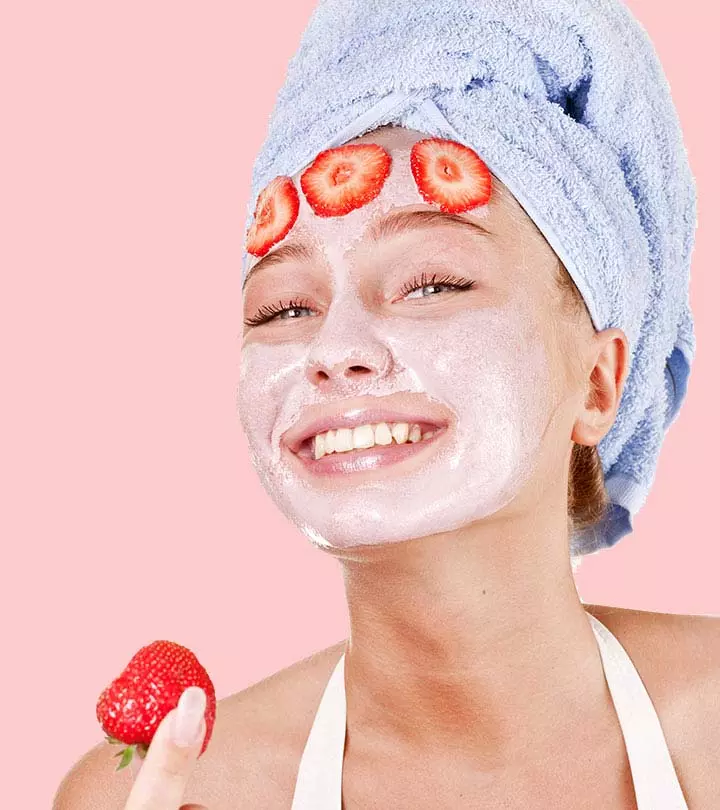
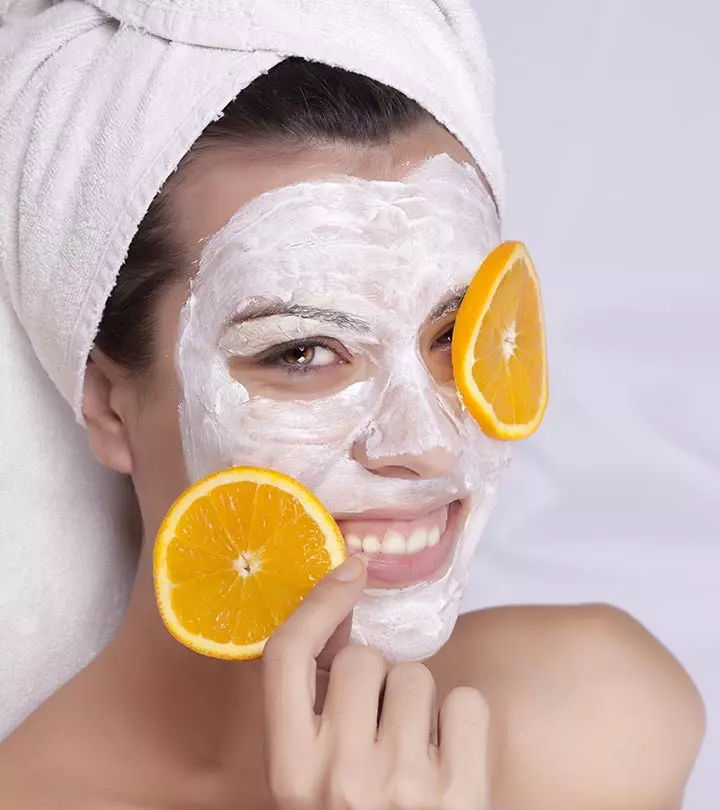
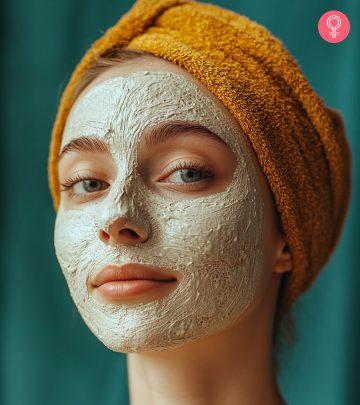

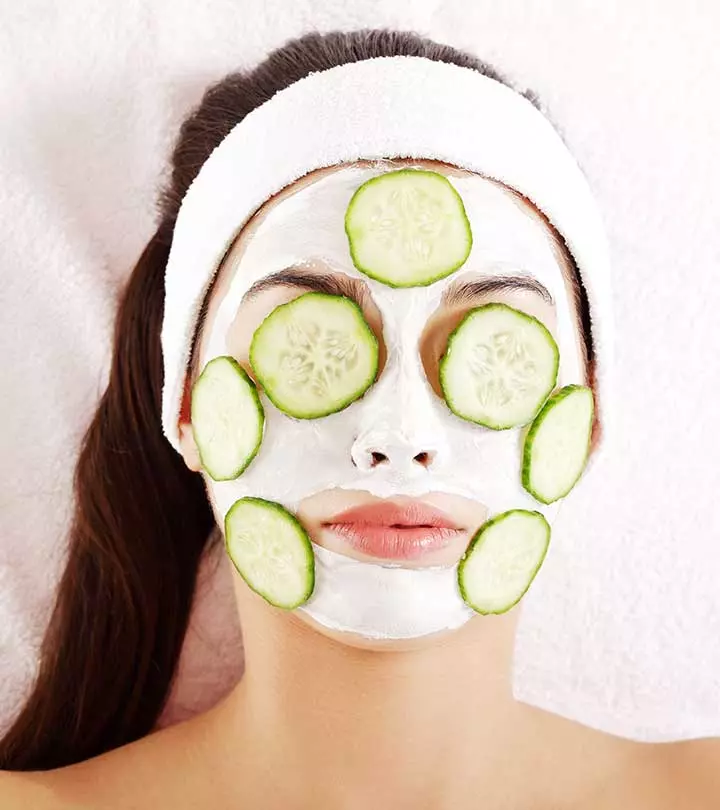
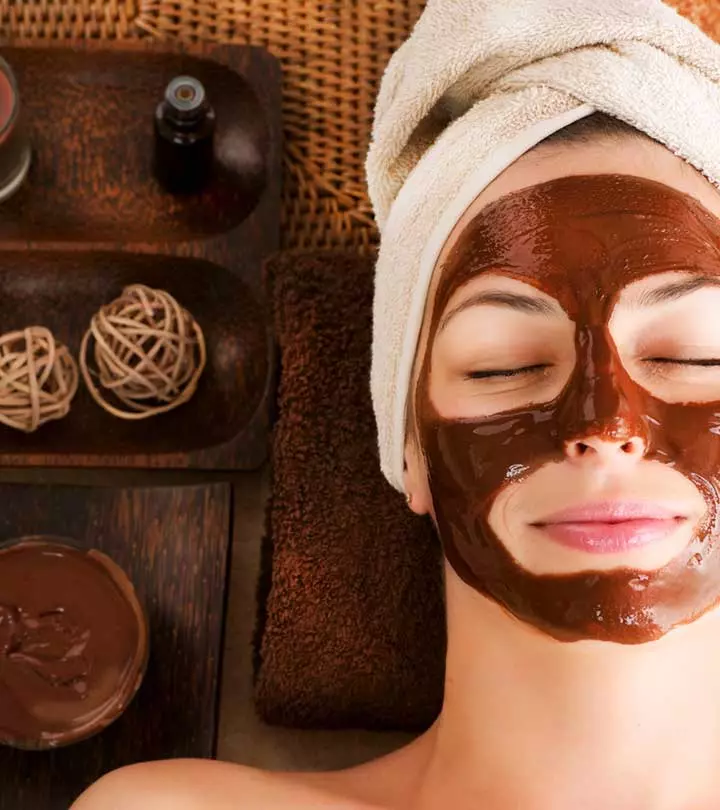

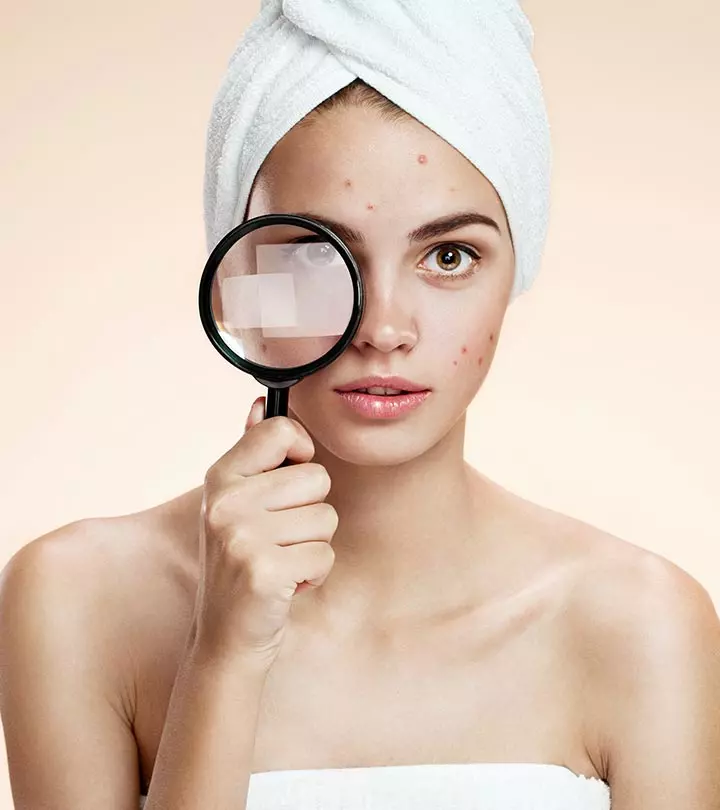
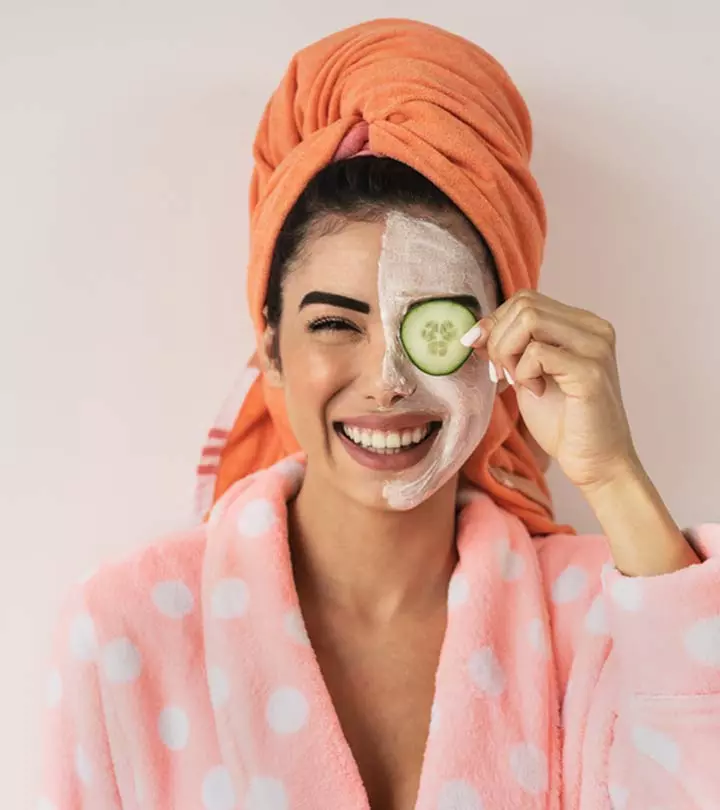
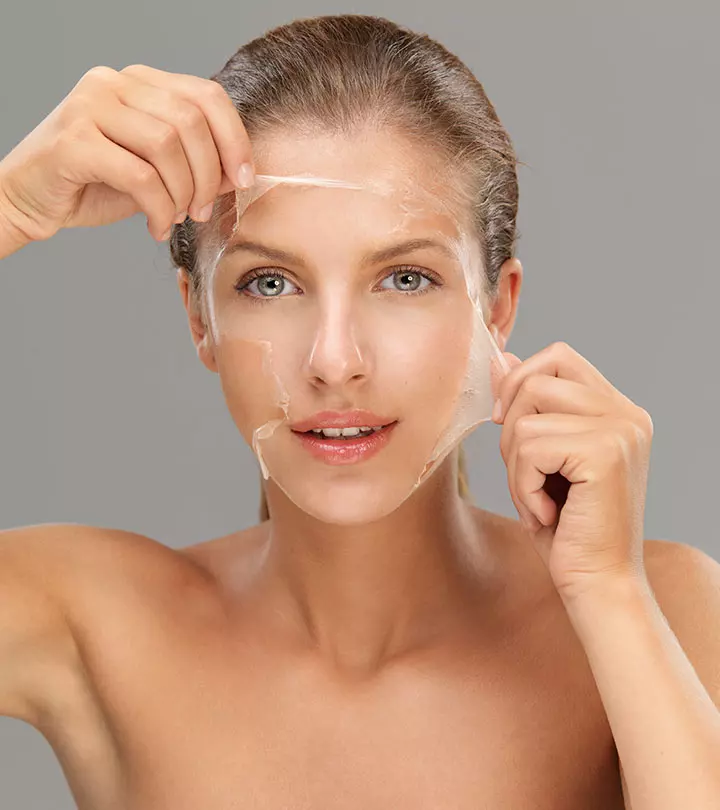

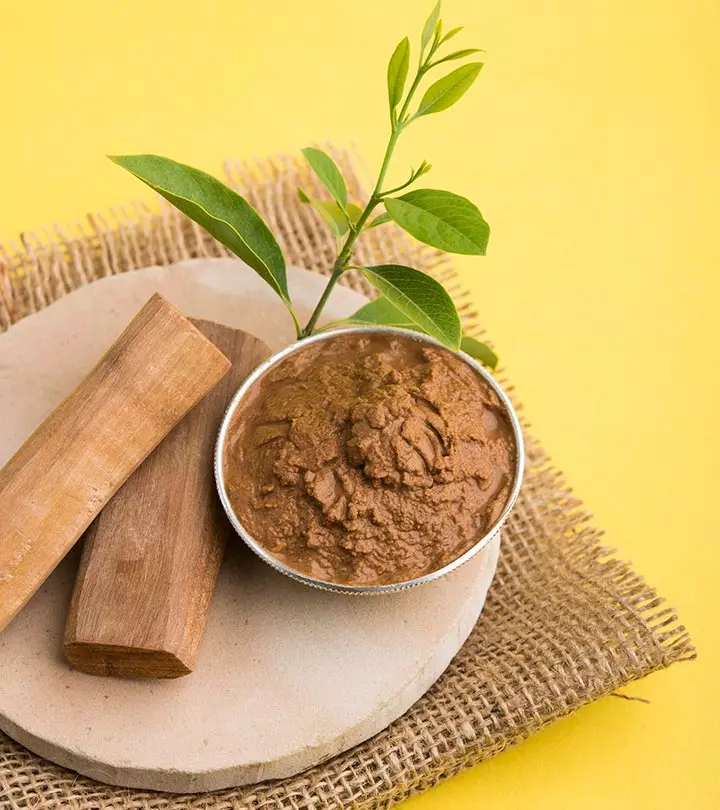

Community Experiences
Join the conversation and become a part of our empowering community! Share your stories, experiences, and insights to connect with other beauty, lifestyle, and health enthusiasts.